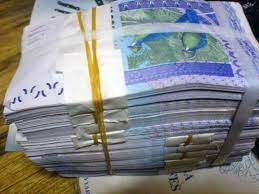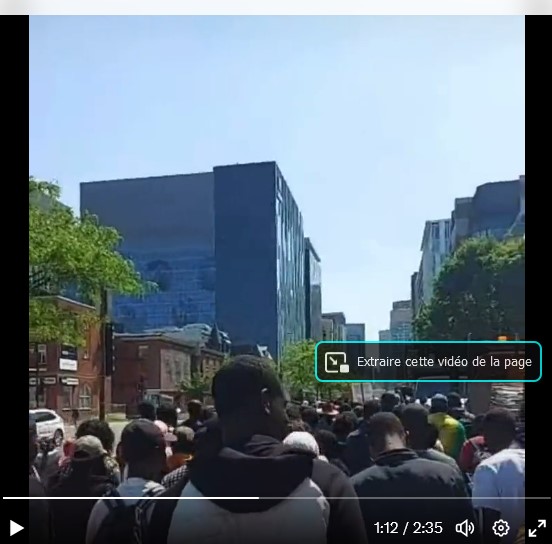Fast backlinks and Guest-post hosting
Thursday, January 16, 2014As the dust surrounding the upcoming March 16th presidential and parliamentary elections gather pace, the Bissau-Guinean authorities have begun the biometric voter registration process of its 35,000 nationals in The Gambia.
The process that began earlier this week came against the backdrop of a series of sensitisation programmes by the Bissau-Guinean authorities in Banjul.
Polls in Bissau were initially scheduled for November 24th, 2013 after a military coup cancelled the 2012 elections, but due to several logistical problems and other administrative constraints, it has been shifted to March 16 2014. Given the length of the transitional period, authorities are poised to conduct the elections come what may.
This reporter visited one of the registration centres in Serrekunda, the biggest centre covering the entire metropolitan town and its suburb to assess the situation as well as sample the views of the electorate on the significance of the polls.
In an interview with the Daily Observer, a registration officer, Benvind Joad Malaca said the registration was going as expected, and that the electorate turned out in their numbers to register. He however lamented the lack of equipment as one major factor that would delay the registration process in Banjul given the populated nature of the Bissau-Guinean community in The Gambia.
“As you may know we have now gone biometric, and we have only one machine (for now) So it is taking time to register all these people around. But generally speaking, it is going well and the turnout so far is very impressive,” he said.
An assistant registration officer, Adelino Bracia Namba, also described the registration process in Banjul as “one of the best.” He disclosed that over one thousand people were registered and that more people were expected to turn out in the subsequent days. “Our main constraint now is the issue of equipment because we are using the biometric system and we have only one machine doing the work, but we expect at least six more before the end of the registration process,” he said.
In spite of this challenge, Namba said they are trying their best to ensure a successful registration exercise in The Gambia. “We have already put our government in the picture about this constraint through the Ministry of Territorial Administration. As you may know Bissau-Guineans form the largest community in The Gambia. It is quite different from the number we have in Senegal, Portugal and other countries like Cape Verde,” he said.
He told the Daily Observer that sensitisation has been going on since the beginning, through three different radio stations; something he said resulted in this large turnout of the electorate.
Also speaking at the registration center, the leader of the Bissau-Guinean community in The Gambia, Mario Ortiz, informed that the registration process that started last Friday will continue for the rest of the week to cover the whole country. “More people have already registered and we are expecting more in the coming days,” he said.
He used the opportunity to urge compatriots to maintain discipline that they are known for and return to their respective houses after casting their vote and wait for the results on election day.
The Guinea Bissau ambassador to The Gambia, Idrissa Diallo assured of a peaceful registration process and election in The Gambia. He acknowledged the support of The Gambia government especially the Inspector General of Police in the whole process. “The Gambian authorities have been supportive to all our activities. This is very good for us,” he said.
Diallo also affirmed that the sensitisation programmes have helped them greatly as many people turned up since the beginning of the registration process to acquire the voter’s card. “There has been no problem since we started the process, the environment is friendly and really we Bissau-Guineans are very happy,” he added.
The ambassador was particularly impressed with the high participation of young people and women in the whole process, urging them to also replicate the same at the polls. “We need change in our country, we want better government and this is only possible if we come out to choose who we want to lead us through to the [envisaged] path,” he remarked.
The Daily Observer also sampled the views of the divisional police commissioner for Kanifing Division, Ma Lamin Ceesay who was inspecting the process. “My impression is that the registration process is going on peacefully and I want to say that I am not very surprised because Bissau-Guineans are law-abiding and I want to urge them to maintain that,” he said.
US on registration
Earlier this week, the government of the United States of America issued a statement urging the government of Guinea-Bissau to adhere to the stated calendar for preparations for March 16, 2014 elections, including a credible and timely voter registration process. This echoed the December 9 statement of the president of the United Nations Security Council.
“We urge President Nhamadjo, Prime Minister Barros, Independent National Electoral Commission Chairman Mendes, and Technical Office for Assistance to the Electoral Process Director Na Bitan to ensure that there are no further delays in the election schedule and that timely registration occurs. Authorities must also urgently improve security conditions and address impunity in order to provide a safe, peaceful environment for both voters and candidates.
We expect the ministers of Interior and Defense, and the Armed Forces Chief of Staff to ensure that security services respect rule of law, civilian authority, and human rights. Security services should cooperate fully with the UN Integrated Peace building Office in Guinea-Bissau and the Mission of the Economic Community of West African States, because the successful and timely conduct of these elections is a critical component of progress towards national reconciliation, democratic governance, and economic reforms,” it stated.
Author: Musa Ndow
Ahead of March polls -Bissau authorities begin registration of 35,000 nationals in Gambia
Outils
Vos reglages
- Plus petit Petit Moyen Grand Plus grand
- Default Helvetica Segoe Georgia Times
- Mode de lecture








